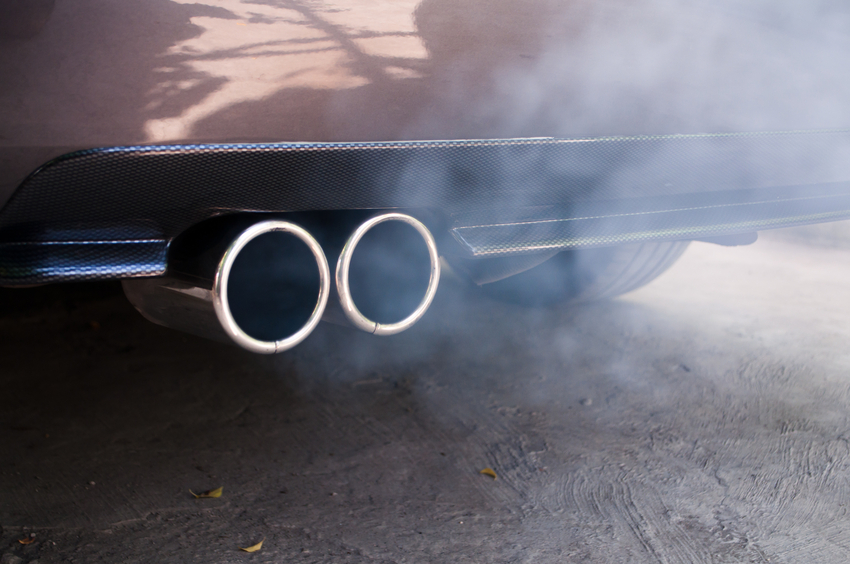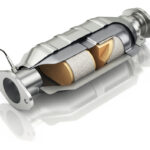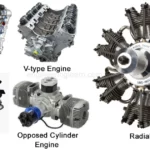Exhaust in a car is the system responsible for releasing combustion fumes from an engine. It consists of several components including exhaust manifolds, catalytic converters, oxygen sensors, mufflers and tailpipes. The purpose of the exhaust system is to reduce harmful emissions released into the atmosphere by helping to burn off unburned fuel and other contaminants as efficiently as possible.
Exhaust systems also help regulate noise levels produced by engines while they are running. Regular maintenance such as inspecting hangers and clamps can help prevent leaks that can lead to poor performance or even damage your vehicle’s engine over time.
Exhaust systems are a key component of any car. They help to reduce the noise from your engine, as well as reduce emissions and increase fuel efficiency. In order for exhaust systems to work properly, they need to be regularly maintained with routine checks and replacements when necessary.
Without regular maintenance, exhaust systems can become clogged or blocked which can cause performance issues such as decreased power output and increased emissions. Keeping up with regular maintenance will ensure that your exhaust system is working optimally helping you get the most out of your vehicle!
Car Exhaust Sound system #shorts
What are Signs of Exhaust Problems?
Exhaust problems are a common issue for car owners and can be caused by a variety of factors. Signs of exhaust problems include increased noise coming from the engine, reduced fuel efficiency, decreased power output, and visible smoke or fumes coming from the tailpipe.
When experiencing any of these signs, it is important to take your vehicle in for an inspection as soon as possible.
It may be necessary to have parts replaced or repaired in order to ensure optimal performance from your vehicle’s exhaust system.
One sign of exhaust trouble is when you hear strange noises emanating from the engine bay such as hissing, popping or rumbling sounds. This may indicate that there is an issue with one or more components within the exhaust system such as cracked pipes or leaking gaskets which need repair work done on them right away.
Another symptom of potential exhaust issues is a decrease in fuel efficiency due to excessive back pressure created by blockages within the system. When this happens, it becomes harder for air and fuel vapors to flow through which reduces overall performance levels and causes your vehicle to become less efficient at burning gasoline/diesel fuel while driving around town.
A third warning sign could be visible smoke coming out of the tailpipe along with a strong smell that indicates something’s wrong internally with either emission control devices like catalytic converters (which reduce emissions) or other components that make up this complex network including mufflers & resonators et alia .
Lastly, when you press down hard on accelerator pedal but still feel sluggishness in response then chances are high that problem lies somewhere among those intricate pipes connected underneath your car !
Can You Drive a Car With Exhaust Issues?
No, it is not advisable to drive a car with exhaust issues. The exhaust system in a vehicle helps remove dangerous gases from the engine and controls noise levels as well. A damaged or malfunctioning exhaust system can result in increased emission of toxic gases like carbon monoxide which can become highly hazardous if breathed in for long periods of time.
Furthermore, driving a car with an inefficient muffler may also lead to higher fuel consumption due to the added resistance caused by the restricted flow of air through the pipes. Additionally, any alterations made to this part of the vehicle such as removing catalytic converters or tampering with other components may further damage your car’s performance and make it unsafe for use on roads.
Therefore, if you notice any signs that indicate something might be wrong with your vehicle’s exhaust system such as loud noises coming from underneath your car, decreased power when accelerating or reduced efficiency when driving at high speeds then it is best to get it checked out by a professional mechanic immediately before attempting to drive again.
What Does an Exhaust Leak Smell Like?
An exhaust leak can have a variety of odors, depending on the type of leak and what’s leaking. Generally speaking, an exhaust leak will smell like sulfur or rotten eggs. This is because the fuel used in cars contains sulfur compounds which react with oxygen to produce that unpleasant odor.
Additionally, if oil or coolant is leaking from the engine into the exhaust system (which can happen due to damaged gaskets), then you may also notice a burning oil smell coming from your vehicle.
The presence of any of these odors could be indicative of an exhaust leak; however, other factors such as humidity and temperature may also play a role in how strong these smells are perceived. If you suspect that there’s an issue with your car’s exhaust system, it would be best to take it for a checkup at your local garage as soon as possible so they can identify where exactly the problem lies and resolve it accordingly.
In addition to potential odors associated with an exhaust leak, other signs include decreased performance levels when driving or idling; increased fuel consumption; rumbling noises originating from underneath the car; smoke coming out behind the vehicle while accelerating; vibrations felt through both acceleration pedals (brake & gas); and visible damage present near components such as catalytic converters or mufflers.
Can a Car Run Without an Exhaust?
No, a car cannot run without an exhaust. The exhaust system is one of the most important components of a car’s engine because it serves several essential functions. It helps to reduce air pollution by converting harmful gases into less toxic substances.
Additionally, it reduces noise levels and directs exhaust away from passengers in the vehicle. Furthermore, the exhaust system also works as part of the engine’s ventilation process—exhaust fumes are expelled through pipes located at the rear of the vehicle while cooler air enters through intake valves located on top or side of an engine block for combustion purposes. Without this vital component, cars would not be able to function properly and could cause serious harm to both people and environment due to their emissions.
The main purpose of having an exhaust system is to control pollutants that come out from your tailpipe when you drive a gasoline-powered car or truck. Gasoline engines produce CO2 (carbon dioxide), NOx (nitrogen oxides) and other hazardous gases such as hydrocarbons (HC) which can be very dangerous if inhaled by humans and animals alike; therefore they must be filtered before being released into our atmosphere in order to avoid any possible health risks associated with them.

Credit: www.sandgateautoelectrics.com.au
How to Fix Exhaust Smell in Car
If you’ve noticed a strange exhaust smell coming from your car, don’t worry – it’s likely something that can be easily fixed. First, check for any visible signs of damage or leakage in the exhaust system, such as cracks and holes. If found, have them professionally repaired.
Next, look for any blockages in the muffler or catalytic converter which can cause a build-up of gas and result in an unpleasant odor. Finally, make sure to regularly maintain your vehicle by changing oil and spark plugs as needed to ensure all components are working properly and your car is running at its best.
Strong Exhaust Smell Outside Car
If you notice a strong exhaust smell outside your car, it may be the result of an incomplete combustion process in the engine. This can happen when there is not enough air or fuel for complete combustion to take place, causing unburned fuel particles to pass through the exhaust system and out into the environment. If this issue persists, it’s important to have your vehicle checked by a professional as soon as possible in order to ensure that no further damage is done.
Exhaust Smell in Car Dangerous
Driving around with an exhaust smell in your car is more than just an unpleasant odor – it can be dangerous. The source of the smell could indicate a leak in the exhaust system that allows deadly carbon monoxide to enter the cabin, potentially causing serious health issues such as headaches, dizziness, and nausea. If you notice an unusual exhaust scent while driving, it’s important to take action quickly by having your vehicle inspected by a qualified mechanic to identify and repair any potential problems before they become serious.
Conclusion
In conclusion, the exhaust system in a car is an essential component that helps reduce vehicle emissions and noise pollution. Without proper maintenance and care, it can become clogged or damaged over time. Proper inspection of the exhaust system should be done regularly to ensure its efficiency.
If any damage or performance issues are detected, they should be addressed immediately to prevent further deterioration and costly repairs down the road.







